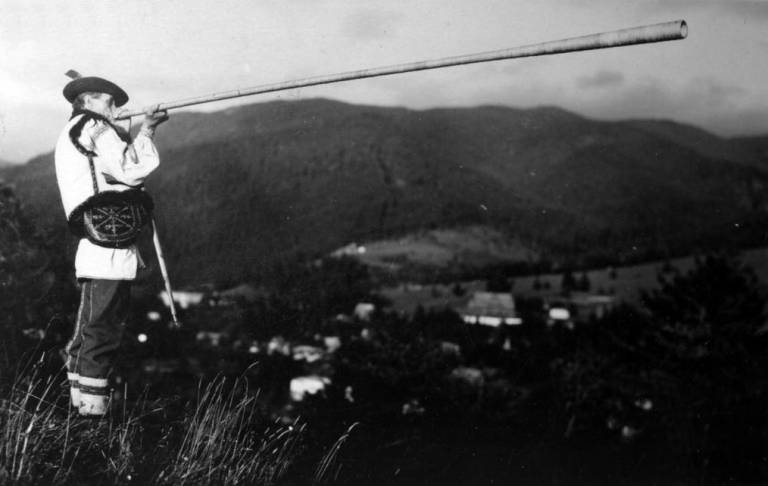(Re)discovering Ukrainianness
06 February 2023, 6:00 pm–8:00 pm

Folklore and National Identity in Soviet Films Depicting Western Ukraine, 1939-1941. A SSEES Russian Cinema Research Group seminar with Stefan Lacny (University of Cambridge)
This event is free.
Event Information
Open to
- All
Availability
- Yes
Cost
- Free
Organiser
-
SSEES
Location
-
Masaryk RoomUCL School of Slavonic and East European Studies16 Taviton streetLondonWC1H 0BW
Abstract
When Red Army forces invaded Poland in September 1939 and occupied the country’s eastern regions (soon to be incorporated into Soviet Ukraine and Belarus), they were soon followed by teams of Soviet film directors and camera operators as well as writers, photographers and journalists. These cultural practitioners were sent to the recently conquered territories to document the establishment of Soviet power in the former Polish east and to propagate the narrative formulated by Stalin’s government that western Ukrainians and Belarusians had been liberated from Polish oppression and reunited with their compatriots in the Soviet Union.
This seminar investigates cinematic depictions of the western Ukrainian countryside from September 1939 to June 1941. From a close examination of the displays of Ukrainian traditional customs and national culture found in films of the era, I argue that the annexation of eastern Poland allowed for the return of an “ethnographic gaze” in Soviet visual culture, as well as strengthening the association between Ukrainianness and folkloric practices. This link is expressed particularly clearly in portrayals of the Hutsul people of the Carpathian highlands, whose distinctive lifestyle captured the imagination of Soviet cultural agents in the rest of Ukraine and beyond. The seminar traces the origins of this rural, folkloric understanding of Ukrainian identity to precedents both within and outside Stalinist culture and explores how the period 1939-1941 can be seen as a bridge between the image of Ukraine found in 1930s Soviet films and the Ukrainian poetic cinema of the 1960s and 1970s.
Speaker
Stefan Lacny is a PhD student in Slavonic Studies at the University of Cambridge under the supervision of Professor Emma Widdis. His doctoral research investigates how early Soviet cinema processed its encounters with cultural “others” in the USSR’s western borderlands from 1925 to 1941, examining filmic depictions of Poles, Ukrainians, Belarusians and Jews in a range of feature and documentary films made both in the Soviet centre and in the national republics. His interests include Soviet nationalities policy, expressions of Soviet Ukrainian identity and the significance of borders in the Soviet cultural imagination. He holds a BA and an MPhil from the University of Cambridge, has worked at the Jagiellonian University in Kraków and is currently a visiting student at the University of Warsaw. His article “Creating the Polish enemy on the Soviet screen, 1925-1939” is forthcoming in Studies in Russian and Soviet Cinema.
Image credit: 'Hutsul highlander playing the trembita in the Verkhovyna district, pre-1939'. NAC digital archives http://audiovis.nac.gov.pl/haslo/102:310/
 Close
Close

